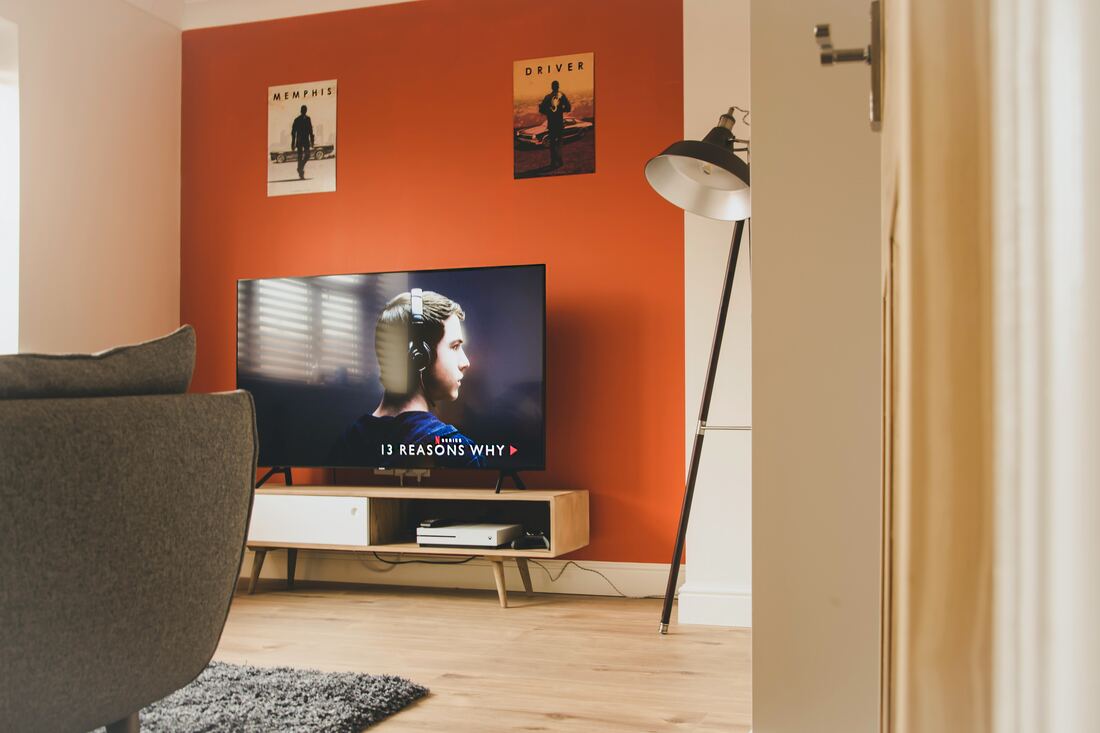|
Collaborative Post | When it comes to enjoying your favourite TV shows and movies, the right aerial installation plays a crucial role in ensuring a seamless and high-quality viewing experience. A well-installed aerial can make all the difference in receiving a strong and clear signal, while a poor installation can lead to frustrating signal disruptions and pixelated images. In this article, we will explore why the right aerial installation is essential for your TV experience and how it can make or break your viewing pleasure.  Photo by Matt Wildbore on Unsplash 1. The importance of signal strengthOne of the key factors that determine the quality of your TV reception is the strength of the signal received by your aerial. A strong signal ensures a clear and uninterrupted viewing experience, while a weak signal can result in pixelation, freezing, or even complete loss of picture and sound. The right aerial installation ensures that your aerial is positioned correctly to receive the strongest possible signal, maximising your TV enjoyment. 2. Choosing the right type of aerialThere are various types of aerials available in the market, each designed to receive signals from different transmission sources. The right aerial installation involves selecting the appropriate type of aerial based on your location and the broadcasting frequencies in your area. For example, if you live in an area with a weak signal, a high-gain aerial may be required to boost the signal strength. On the other hand, if you live near a transmitter, a standard aerial may be sufficient. A professional aerial installer can assess your needs and recommend the most suitable aerial for your location. 3. Correct positioning for optimal receptionAnother crucial aspect of aerial installation is the correct positioning of the aerial. The position and orientation of the aerial can significantly impact the quality of the signal received. Factors such as nearby buildings, trees, and other obstructions can interfere with the signal. A professional installer will assess your surroundings and determine the best position for your aerial to ensure maximum signal reception. They will also consider factors such as the direction of the transmitter and the height at which the aerial should be installed for optimal performance. 4. Ensuring safely and complianceA professional aerial installation not only ensures a great TV experience but also prioritises safety and compliance with industry standards. DIY installations or hiring inexperienced installers can pose safety risks, such as falls from heights or electrical hazards. Professional installers are trained to follow safety protocols and adhere to industry regulations, ensuring that your aerial installation is safe and compliant. They will also provide warranties and guarantees for their work, giving you peace of mind and protection in case of any issues. 5. Future-proofing your TV setupTechnology is constantly evolving, and so are TV broadcasting standards. The right aerial installation takes into account future developments and ensures that your TV setup is future-proofed. Professional aerial installers stay updated with the latest advancements in aerial technology and can advise on the most suitable equipment for your needs. They can also install additional features such as signal amplifiers or filters to enhance your TV reception and prepare your setup for any upcoming changes in broadcasting standards. The bottom lineIn conclusion, the right aerial installation is crucial for a seamless and enjoyable TV experience. It ensures a strong and clear signal, correct positioning for optimal reception, and compliance with safety standards.
By choosing a professional installer, you can be confident that your aerial installation is done correctly, maximising your TV enjoyment and future-proofing your setup. Don't underestimate the importance of a well-installed aerial - it can truly make or break your TV experience. Disclaimer: this is a collaborative post. Collaborative Post | As we age, it becomes increasingly important to take proactive steps to maintain our health and wellbeing. After 50, our bodies and minds go through changes that require us to be more thoughtful about our lifestyle choices. The key to ageing well is making small but impactful changes to our diet, activity levels, preventative care, social connections, sleep habits and stress management. By being mindful of these key areas and making positive changes, we can increase our chances of living a long, healthy and fulfilling life after 50. This article will provide tips and guidance to help people over 50 optimise their physical, mental and emotional health as they enter their later decade.  Photo by Brooke Lark on Unsplash The importance of a balanced dietEating a nutritious, balanced diet is essential for good health as we age. The nutritional needs of our bodies change as we get older, so it’s important to adapt our diets accordingly. Focus on eating plenty of fruits, vegetables, whole grains, lean proteins, nuts and seeds. Limit processed foods, salt, added sugar and unhealthy fats. Stay hydrated by drinking water throughout the day. Take supplements if recommended by your doctor to address any nutritional gaps. Consider the impact of medications on nutrient absorption. Set reminders to eat regular, balanced meals and snacks to maintain energy levels. Cooking meals at home makes following a healthy diet easier. Overall, a varied, nutrient-dense diet will help keep you healthy and energised. Staying physically activeStaying physically active is crucial for maintaining health and mobility as we get older. Regular exercise keeps muscles and joints strong, and with exercise you can to add joint health supplements like JointXL Plus and Osteo Bi-Flex– to improve comfort, mobility & flexibility which boosts balance and coordination, maintains bone density, prevents weight gain and reduces the risk of chronic diseases. Aim for at least 150 minutes of moderate exercise like brisk walking each week, plus muscle-strengthening activities at least two days per week. Mix up your workouts to keep it interesting - try swimming, cycling, yoga, Pilates, tennis or other activities you enjoy. If you have limitations, focus on gentle exercises that increase flexibility, balance and strength. Seek advice from your doctor if needed. Staying active keeps you independent, improves sleep and mental health, and enables you to remain engaged with family/friends. Movement is medicine, so find ways to incorporate it into your daily routine. Regular health check-upsParticularly as we age, regular health check-ups become increasingly important to monitor and maintain our overall well-being. These check-ups can help identify potential issues before they become more serious and harder to manage. It’s recommended to have routine check-ups with your GP, as well as regular screenings for common age-related conditions such as high blood pressure, cholesterol levels, diabetes, and certain types of cancer. Additionally, men over the age of 50 should consider regular check-ups for prostate health. If you are experiencing issues with erectile dysfunction, you can buy Sildenafil online from trusted sources like Chemist4U. Remember, early detection and management of any health issues are key to enjoying a good quality of life as you age. Regular check-ups and screenings are an essential part of healthy ageing. Maintaining healthy relationshipsMeaningful social connections are vital for mental, emotional and physical health as we get older. Make nurturing relationships with family and friends a priority. Set aside quality time for your spouse/partner and schedule regular visits, calls or activities with children and grandchildren. Catch up often with friends and expand your social circle to meet new people. Join clubs, volunteer groups or adult education classes to pursue hobbies and interact with like-minded individuals. Don’t neglect relationships with caregivers, neighbours and younger generations. Combat isolation through community participation. Be willing to seek counselling if needed to resolve conflicts or process grief. The importance of adequate sleepGetting enough high-quality sleep is essential at any age, but especially after 50. Adequate sleep preserves cognitive function, bolsters immunity, improves mood, increases energy and allows the body to heal and regenerate. Adults over 50 often experience normal age-related changes to sleep patterns, like taking longer to fall asleep and getting less deep sleep. Still aim for 7-8 hours per night. Keep a consistent sleep-wake schedule. Limit daytime naps to 30 minutes. Establish relaxing pre-bed routines and wind down screens. Avoid large meals, caffeine and alcohol before bed. Create an optimal sleep environment that is cool, dark and quiet. Evaluate medication side effects and underlying issues like sleep apnoea or restless leg syndrome if needed. Prioritising healthy sleep habits leads to better daily performance and quality of life. Tips for managing stress and anxietyManaging stress and anxiety is key for mental health as we age. Retirement, health changes, grief and increased caregiver responsibilities can be challenging. Make self-care a priority through relaxation practices like meditation, deep breathing, yoga, massage or aromatherapy. Stay active and eat a brain-healthy diet rich in omega-3s. Connect regularly with supportive friends and family. Pursue hobbies that bring joy and purpose. Limit alcohol and caffeine, which can exacerbate anxiety. Speak to a therapist if needed for tools to manage worried thoughts. Discuss medications with your doctor if anxiety persists. Set realistic goals and break big tasks into smaller steps to reduce overwhelm. Listen to relaxing music and spend time outdoors in nature. Get enough sleep and avoid screens before bed. Beating stress improves your outlook, resilience and ability to tackle life’s ups and downs.
Disclaimer: this is a collaborative post. |
Search my blog ...Categories ...Read my latest blog post!Subscribe below to receive regular updates by email:
Archives
July 2024
|


